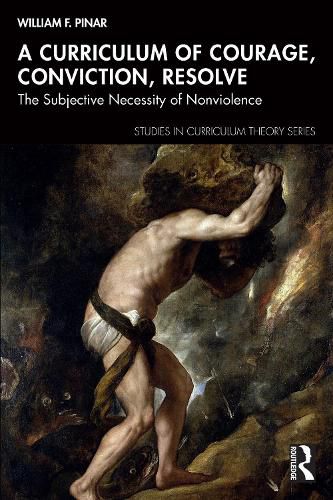Readings Newsletter
Become a Readings Member to make your shopping experience even easier.
Sign in or sign up for free!
You’re not far away from qualifying for FREE standard shipping within Australia
You’ve qualified for FREE standard shipping within Australia
The cart is loading…






The world is periodically consumed by violence, in recent years by the Russian invasion of Ukraine, Hamas' October 7th terrorism in Israel, and by the genocide of Palestinians in Gaza by Israelis in response. In response to this world-historical situation, this book attempts a curriculum studies approach. Drawing on foundational texts from Hongyu Wang, James B. Burns, Christopher Cruz, and Molly Quinn, as well as his own work on violence, Pinar considers nonviolence as a counterpart to the many forms of violence - specifically gendered and racialized violence, including when the two are intertwined, but also in decolonization, imperialism, colonialism, as well as in classrooms - that are ever present in our modern world.
Throughout the chapters, Pinar knits together fragments of scholarly thought on nonviolence and presents a rich and at times deeply personal study of the concepts to create a curriculum from which students can study the absurdity of the human condition: how humanity requires nonviolence to flourish, but is too often drowned out by man's inhumanity to man.
This essential work in curriculum theory will inform researchers and students of curriculum theory, peace studies, justice studies, and authoritarianism.
$9.00 standard shipping within Australia
FREE standard shipping within Australia for orders over $100.00
Express & International shipping calculated at checkout
The world is periodically consumed by violence, in recent years by the Russian invasion of Ukraine, Hamas' October 7th terrorism in Israel, and by the genocide of Palestinians in Gaza by Israelis in response. In response to this world-historical situation, this book attempts a curriculum studies approach. Drawing on foundational texts from Hongyu Wang, James B. Burns, Christopher Cruz, and Molly Quinn, as well as his own work on violence, Pinar considers nonviolence as a counterpart to the many forms of violence - specifically gendered and racialized violence, including when the two are intertwined, but also in decolonization, imperialism, colonialism, as well as in classrooms - that are ever present in our modern world.
Throughout the chapters, Pinar knits together fragments of scholarly thought on nonviolence and presents a rich and at times deeply personal study of the concepts to create a curriculum from which students can study the absurdity of the human condition: how humanity requires nonviolence to flourish, but is too often drowned out by man's inhumanity to man.
This essential work in curriculum theory will inform researchers and students of curriculum theory, peace studies, justice studies, and authoritarianism.